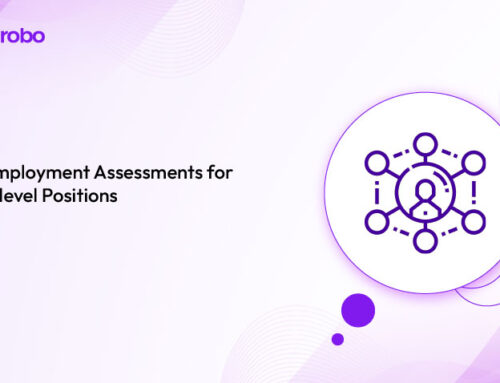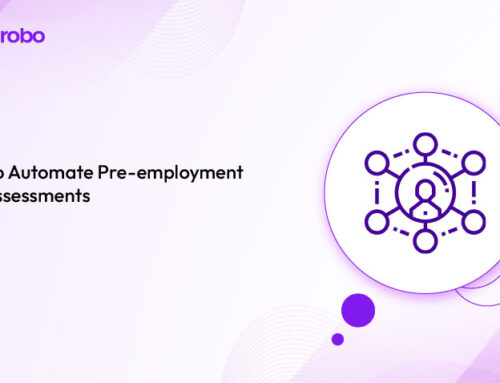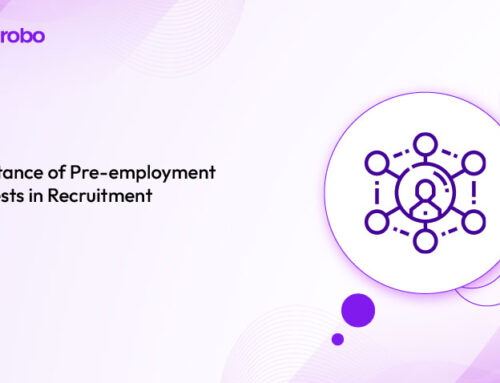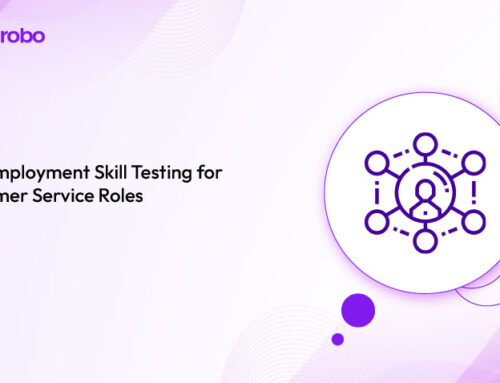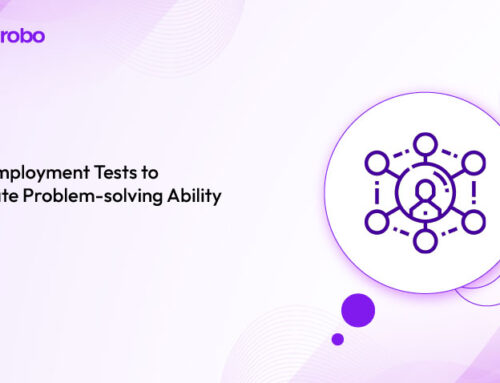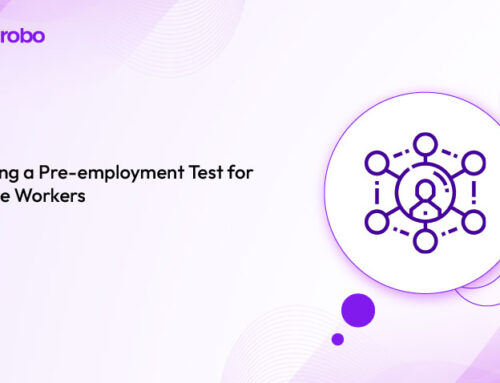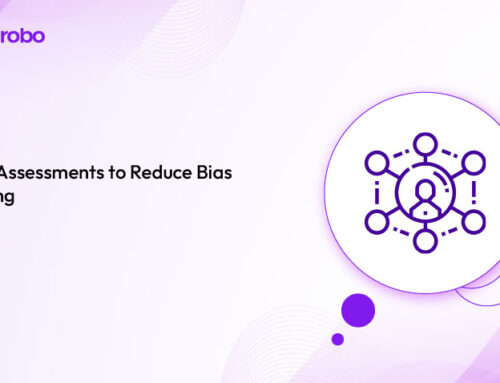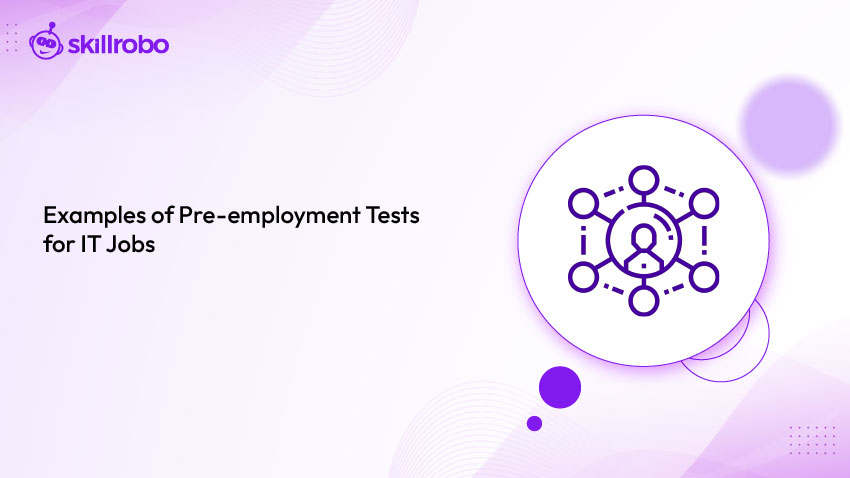
Key Takeaways
- Pre-employment tests validate coding, technical, and problem-solving skills, ensuring IT hires excel in real-world tasks. They cut through resume fluff to reveal true tech wizards.
- Tailored assessments save time by identifying role-ready candidates fast. US recruiters report 20% faster hiring with skills tests, per LinkedIn.
- Objective evaluations reduce bias, focusing on ability over credentials. This ensures equitable hiring for diverse IT roles.
- Tests ensure hires fit technically and culturally, reducing onboarding gaps. Strong performers drive innovation and system reliability.
Your Quest for IT Superheroes Begins!
Hiring for IT is like auditioning for a blockbuster superhero flick—you’re hunting for a tech titan, not someone who thinks “reboot” means kicking the server. Resumes? They’re as reliable as a fortune cookie predicting your next sprint. One bad hire, and your project’s crashing faster than a browser with 50 open tabs. Pre-employment tests are your trusty sidekick, spotlighting candidates who can code, debug, and save the day. In this guide, we’ll unpack the best multiple-choice (MCQ) and short descriptive tests to build your IT dream team, with a conversational vibe, US-based stats, and a splash of humor to keep it lively.
We’ll explore the examples of pre-employment tests for IT jobs with Skillrobo’s AI-powered assessments and show how they make hiring a breeze. You’ll also see how to streamline recruitment and snag top talent. Let’s dive into the tech-tastic world of IT hiring!
Why Pre-Employment Tests Are Your IT Hiring Superpower
IT roles—developers, cybersecurity gurus, network admins—demand precision. A resume might boast “JavaScript Jedi,” but can they ace MCQs on app stability or describe debugging steps? Pre-employment tests cut through the noise, proving who’s got the skills. They’re like a tech talent show: no smoke and mirrors, just raw ability.
Here’s why they’re essential:
- Skill Proof: A 2023 SHRM survey shows 68% of US hiring managers use skills tests to verify technical prowess, ensuring hires tackle real tasks.
- Time-Saver: LinkedIn reports 76% of US tech recruiters save at least 20% of hiring time with skills assessments, letting you focus on the best candidates.
- Bias-Buster: Objective tests promote fairness, focusing on ability over charm. Check out for tips on equitable recruitment.
- Role Match: Tailored tests align candidates with specific IT needs, from coding to crisis management, so you don’t hire a square peg for a round server.
Skillrobo’s let you customize MCQ and short descriptive tests for any IT role, ensuring hires are ready to shine. Let’s break down the test categories with expanded examples to power up your hiring game.
Coding Skills Tests: Separating Coders from Copy-Pasters
Coding drives everything in IT—from web development and automation to backend systems and infrastructure maintenance. To identify developers who can truly deliver clean, scalable, and maintainable code, recruiters need more than keyword-matching or resume reviews. Here are five coding-focused assessments that combine multiple-choice and short-answer formats—perfect for the testing framework on Skillrobo.
1. Syntax Mastery Test
Purpose: Evaluates fundamental understanding of programming syntax, structure, and logical flow.
- MCQ: Present four variations of a Python function designed to generate a Fibonacci sequence. Each snippet includes minor syntax or logic errors, except for one correct version. Ask candidates to select the correct snippet.
- Descriptive: Prompt the candidate to briefly explain their choice, focusing on function structure, loop/recursion use, and why the chosen syntax is valid.
Why It Matters: Syntax errors are among the most common causes of runtime failures and debugging delays. This test ensures the candidate can write syntactically sound code from the start, reducing the burden on code reviewers and QA teams.
Best For: Developers, automation engineers, QA engineers.
2. Debugging Challenge
Purpose: Assesses a candidate’s ability to read, understand, and correct flawed code—a critical skill for maintaining existing systems.
- MCQ: Display a small JavaScript function that includes a race condition (e.g., asynchronous updates without proper handling). Provide four diagnostic options, and ask candidates to identify the most likely cause of the issue.
- Descriptive: Ask the candidate to describe in 2–3 sentences how they would fix the problem, highlighting synchronization, callbacks, or promises as needed.
Why It Matters: Bugs in live systems can lead to downtime, data inconsistencies, or customer frustration. This test helps filter for candidates who can read code critically and apply logical fixes without breaking surrounding functionality.
Best For: Full-stack developers, JavaScript developers, system maintainers.
3. Algorithm Efficiency Test
Purpose: Measures a candidate’s understanding of algorithm optimization and memory management for performance-critical environments.
- MCQ: Provide a large-data sorting scenario and ask candidates to select the most memory-efficient algorithm (e.g., merge sort vs. bubble sort vs. heap sort), with constraints around execution time and memory usage.
- Descriptive: Ask them to explain why their choice is the best fit, referencing Big O notation and any trade-offs between time and space complexity.
Why It Matters: Scalable solutions are essential for high-traffic systems and data-heavy applications. Developers must know how to choose the right algorithm for the context to avoid system slowdowns and crashes.
Best For: Backend engineers, data scientists, ML/AI engineers.
4. Live Coding Simulation
Purpose: Simulates day-to-day coding responsibilities using scenario-based MCQs and logic description prompts.
- MCQ: Outline a requirement to build a REST API endpoint using Node.js. Include options testing best practices like error handling, status codes, and data validation.
- Descriptive: Ask candidates to outline the steps they would follow to build the endpoint, including tools, methods, and handling of edge cases, in 2–3 clear sentences.
Why It Matters: This test substitutes live coding with structured thought exercises. It evaluates coding process awareness, planning, and problem-solving without requiring real-time compilers.
Best For: API developers, backend developers, junior engineers.
5. Code Security Review
Purpose: Gauges understanding of secure coding practices and attention to common vulnerabilities.
- MCQ: Present a short PHP authentication script with vulnerabilities such as SQL injection or hardcoded credentials. Ask candidates to identify the security flaws from the options provided.
- Descriptive: Prompt candidates to explain how they would fix the vulnerabilities, such as implementing prepared statements, using environment variables, or input validation.
Why It Matters: Security flaws in code can lead to data breaches, legal liabilities, and reputation damage. This test helps ensure candidates understand how to build secure applications from the ground up.
Best For: Application developers, security engineers, DevOps professionals.
A 2024 HackerRank study found 74% of US tech firms rely on coding tests to vet developers, proving their worth in finding true talent. These tests ensure your hires can code their way out of any digital jam.
Technical Knowledge Tests: Do They Know the Tech?
IT professionals are often the backbone of system stability and digital security. From configuring networks to managing data and ensuring system integrity, their technical decisions have far-reaching consequences. Pre-employment tests help validate that candidates are equipped to manage real-world IT environments, tools, and infrastructure.
Below are five targeted technical assessments that help you evaluate deep domain expertise using structured formats supported by Skillrobo.
1. Network Configuration Test
Purpose: Measures a candidate’s ability to configure and troubleshoot network setups, ensuring stable and secure connectivity.
- MCQ: Provide a scenario where a user is unable to access a server due to a firewall or subnet misconfiguration. Ask candidates to select the correct fix (e.g., port rules, subnet mask adjustments).
- Descriptive: Ask candidates to explain in 2–3 sentences why the chosen configuration resolves the issue and how it maintains network integrity.
Why It Matters: Poor network configurations can cause system downtime, reduced access, and security loopholes. This test ensures the candidate can design and troubleshoot network settings that support business continuity and scalability.
Best For: Network administrators, infrastructure engineers, IT support specialists.
2. SQL Proficiency Test
Purpose: Assesses the ability to write optimized, accurate SQL queries for data extraction and analysis.
- MCQ: Present a business scenario requiring multi-table joins (e.g., analyzing sales data across regions) and ask candidates to select the correct SQL statement.
- Descriptive: Prompt candidates to describe how the selected query retrieves data and supports business insights in 2–3 sentences.
Why It Matters: SQL accuracy ensures the quality and performance of data reporting. This test helps filter out candidates who can work confidently with structured databases, enabling teams to make reliable, data-driven decisions.
Best For: Database administrators, data analysts, business intelligence specialists.
3. Cloud Architecture Test
Purpose: Evaluates a candidate’s understanding of cloud environments, especially around configuration, access control, and security best practices.
- MCQ: Ask candidates to choose the correct way to set up a secure AWS S3 bucket that includes IAM roles, versioning, and encryption.
- Descriptive: Have them explain why this configuration prevents unauthorized access and supports scalable, compliant cloud usage.
Why It Matters: As cloud infrastructure becomes the standard, it’s critical that candidates understand how to deploy secure, efficient cloud systems. This test ensures new hires can configure services without introducing risks or inefficiencies.
Best For: Cloud engineers, DevOps professionals, systems architects.
4. Cybersecurity Knowledge Test
Purpose: Assesses awareness of secure practices for protecting sensitive data and complying with industry standards.
- MCQ: Present a data protection scenario and ask candidates to choose the most appropriate encryption technique (e.g., AES-256 for stored financial data).
- Descriptive: Ask them to explain how the selected method enhances data protection and meets compliance frameworks like GDPR or HIPAA.
Why It Matters: With rising cyber threats, secure coding and encryption are non-negotiable. This test helps confirm that your hires can build and maintain systems that resist breaches and protect company assets.
Best For: Cybersecurity analysts, compliance officers, security engineers.
5. Tool Proficiency Test
Purpose: Tests knowledge of commonly used IT tools like Git, Docker, Jenkins, or Ansible that streamline development and deployment.
- MCQ: Ask candidates to choose the correct next step when resolving a Git merge conflict or when fixing a Docker container issue (e.g., missing dependencies).
- Descriptive: Prompt candidates to describe in 2–3 sentences how they would troubleshoot or resolve the issue to maintain code integrity and system reliability.
Why It Matters: Hands-on proficiency with tools ensures smoother team integration and faster onboarding. Candidates who are already familiar with essential toolchains help reduce downtime and improve workflow efficiency from day one.
Best For: DevOps engineers, software developers, and release managers.
Why Technical Tests Matter –
These tests bridge theoretical knowledge and practical application, ensuring hires are ready for job-specific challenges. Tools like Skillrobo allow customization to match your tech stack, delivering precise evaluations. Strong performers keep systems running, data secure, and infrastructure scalable.
Problem-Solving and Logic Tests: Can They Crack the Chaos?
When IT systems fail, stall, or slow down, the first line of defense is a quick-thinking, analytically sound professional. These moments require clarity, not panic, and that’s where logic and problem-solving assessments come in. Structured MCQs and descriptive questions provide a reliable way to measure how well candidates can diagnose problems, optimize performance, and make smart decisions under pressure.
Below are five practical logic and problem-solving assessments that help identify tech talent capable of handling unpredictable, high-impact challenges.
1. Resource Allocation Test
Purpose: Tests a candidate’s ability to manage limited computing resources effectively, simulating real-world infrastructure decisions.
- MCQ: Present a scenario where a system has limited CPU and memory, and ask candidates to choose the optimal distribution for a given workload (e.g., running two high-memory applications and a lightweight process).
- Descriptive: Ask the candidate to justify their choice in 2–3 sentences, explaining the reasoning behind their allocation strategy and how it prevents system overload.
Why It Matters: Efficient resource allocation is vital in virtualized environments, cloud platforms, and edge computing. This test helps ensure that candidates can plan infrastructure intelligently, reducing the risk of performance bottlenecks and system crashes.
Best For: System architects, infrastructure engineers, platform operations teams.
2. Troubleshooting Test
Purpose: Assesses the candidate’s ability to read logs, detect the root cause of an issue, and propose a logical fix.
- MCQ: Share a simplified system log showing signs of a database deadlock, failed transactions, or recurring timeout errors. Ask candidates to identify the most likely cause from multiple options (e.g., locking issues, stale connections).
- Descriptive: Prompt them to explain how they would resolve the issue, such as modifying transaction ordering, revising indexing, or killing stalled processes.
Why It Matters: Fast, accurate troubleshooting reduces system downtime and keeps critical services running. Candidates who excel here can manage support escalations, production issues, and performance incidents without disrupting the business.
Best For: IT support professionals, system administrators, database engineers.
3. Performance Optimization Test
Purpose: Measures a candidate’s awareness of performance tuning strategies, especially in scenarios involving laggy APIs or inefficient code execution.
- MCQ: Present a use case where an API has poor response times during traffic spikes. Provide multiple options—e.g., adding caching layers, optimizing database calls, or modifying server configuration—and ask candidates to pick the best approach.
- Descriptive: Ask the candidate to describe why their selected method would improve performance, referencing key metrics like response time or resource utilization.
Why It Matters: Efficient systems enhance user experience, reduce operational overhead, and scale effectively under load. This test identifies candidates who can proactively spot and resolve inefficiencies in software or infrastructure.
Best For: Backend developers, performance engineers, full-stack developers.
4. Predictive Analysis Test
Purpose: Evaluates the candidate’s ability to interpret error trends and anticipate potential failures before they happen.
- MCQ: Share a series of log entries with repeated memory spikes or slow GC (garbage collection) messages. Ask candidates to choose the most likely issue—e.g., a memory leak, unbounded caching, or a flawed data model.
- Descriptive: Ask the candidate to outline a prevention or remediation plan, such as monitoring heap size, optimizing object lifecycles, or implementing automated alerts.
Why It Matters: Preventing downtime is far more efficient than recovering from it. This test reveals forward-thinking candidates who can identify weak points before they escalate into service disruptions or breaches.
Best For: Site reliability engineers, observability teams, system administrators.
5. Crisis Decision Test
Purpose: Assesses logical prioritization, decision-making under stress, and the ability to mitigate damage during unexpected system failures.
- MCQ: Simulate a high-pressure situation, such as a failing patch deployment on a production server with customers online, and offer options like rolling back, restarting, or patching live. Ask candidates to choose the best course of action based on risk.
- Descriptive: Prompt them to explain the rationale for their decision in 2–3 sentences, referencing the balance between recovery speed, user impact, and system stability.
Why It Matters: During an incident, the ability to stay calm and act decisively can mean the difference between recovery and catastrophe. This test helps identify candidates who demonstrate judgment, leadership, and composure in chaotic situations.
Best For: Incident response teams, IT managers, infrastructure leads.
Why Logic Tests Are Essential –
A 2023 IBM report highlights that 65% of top US IT performers excel in logical reasoning, underscoring the value of these tests. Skillrobo’s customizable challenges help identify problem-solvers who keep systems running and projects on schedule.
Behavioral and Teamwork Tests: Building Cohesive IT Teams
IT roles demand collaboration, communication, and adaptability in agile, cross-functional, or remote settings. MCQ and descriptive behavioral tests evaluate soft skills, ensuring hires align with team dynamics and company culture.
1. Collaboration Test
Purpose: Evaluates how candidates navigate team-based tasks and contribute to shared success.
- MCQ: Present a virtual sprint scenario where a bug is slowing progress. Offer four collaboration strategies—e.g., working solo to fix it vs. seeking teammate input—and ask candidates to choose the most effective.
- Descriptive: Ask the candidate to describe in 2–3 sentences how they’d contribute to team success and maintain alignment during the sprint.
Why It Matters: IT projects often involve close collaboration. Candidates who show awareness of collective goals and respect team input help keep deliverables on time and teams engaged.
Best For: Developers, QA engineers, project coordinators.
2. Communication Clarity Test
Purpose: Measures a candidate’s ability to translate technical knowledge for diverse audiences.
- MCQ: Ask candidates to choose the most effective way to explain “containerization” to a non-technical stakeholder—options range from technical jargon to simple analogies.
- Descriptive: Have them write a 2–3 sentence explanation of the concept for a business executive with no technical background.
Why It Matters: Clear communication reduces confusion, accelerates decision-making, and fosters better relationships across teams. It’s a critical skill for roles bridging technical and non-technical functions.
Best For: IT consultants, team leads, solutions architects.
3. Adaptability Test
Purpose: Tests how well candidates respond to shifting requirements, priorities, or roles.
- MCQ: Present a situation where a project scope suddenly changes mid-sprint. Ask candidates to choose the best way to adapt while keeping team morale intact.
- Descriptive: Request a short explanation of how they would realign priorities and manage changes effectively.
Why It Matters: IT environments evolve quickly. Candidates who can pivot without disruption are valuable assets for product development, operations, and agile planning.
Best For: Agile developers, product managers, DevOps professionals.
4. Conflict Resolution Test
Purpose: Evaluates diplomacy and emotional intelligence when team tensions arise.
- MCQ: Show a situation where two teammates disagree over resource allocation. Ask candidates to pick the best resolution strategy—e.g., mediating, escalating, or compromising.
- Descriptive: Ask how they would resolve the situation while preserving team trust and momentum.
Why It Matters: Effective conflict resolution fosters a collaborative culture, reducing project delays and maintaining team morale in high-pressure environments.
Best For: Scrum masters, team leads, project managers.
5. Stress Management Test
Purpose: Assesses the candidate’s composure and decision-making in high-stress environments.
- MCQ: Simulate an IT outage with customer complaints coming in. Offer responses ranging from reactive to composed, and ask which is most effective.
- Descriptive: Have candidates describe how they stay calm and focused when facing technical incidents and tight deadlines.
Why It Matters: Calm professionals keep teams grounded and customers reassured during emergencies, ensuring business continuity and reputation management.
Best For: Incident managers, support engineers, and NOC teams.
Why Behavioral Tests Are Critical –
LinkedIn data indicates 60% of US IT leaders prioritize cultural fit, making these tests vital for cohesive teams. Skillrobo’s tailored assessments ensure hires excel in communication, adaptability, and teamwork, enhancing project outcomes.
Practical Application Tests: Proving Real-World Impact
Practical tests replicate job tasks, from server setup to app security, showing how candidates apply skills in real IT scenarios. MCQ and descriptive formats ensure hires are ready to deliver results.
1. Server Configuration Test
Purpose: Assesses system administration and infrastructure security practices.
- MCQ: Present a Linux system setup scenario involving user permissions, SSH configuration, and firewall rules. Ask candidates to select the safest and most efficient setup.
- Descriptive: Prompt them to explain how their solution secures access and prevents unauthorized actions.
Why It Matters: Proper server configuration is foundational to system reliability and data protection. This test ensures candidates understand how to set up and maintain secure environments.
Best For: System administrators, Linux engineers, IT infrastructure specialists.
2. Application Security Test
Purpose: Evaluates understanding of common software vulnerabilities and mitigation strategies.
- MCQ: Display a web app login form vulnerable to SQL injection. Ask candidates to choose the correct way to secure it (e.g., prepared statements, input sanitization).
- Descriptive: Ask candidates to explain how their fix improves security and aligns with best practices.
Why It Matters: Secure development prevents breaches and ensures compliance with data protection regulations. This test filters candidates who can build resilient, user-trusted applications.
Best For: Security engineers, application developers, compliance leads.
3. Data Migration Test
Purpose: Tests database handling, indexing, and error prevention during migrations.
- MCQ: Present a scenario involving moving data from MySQL to MongoDB. Ask candidates to choose the correct steps for indexing and data transformation.
- Descriptive: Ask how they would ensure zero data loss and integrity during the migration.
Why It Matters: Smooth migrations prevent data corruption, service downtime, and revenue loss. This test identifies candidates who understand structure, sequence, and cross-platform considerations.
Best For: Database engineers, data architects, ETL specialists.
4. Automation Scripting Test
Purpose: Assesses efficiency in scripting for routine task automation.
- MCQ: Provide options for a Bash script that automates log rotation and archival. Ask candidates to select the one that minimizes errors and reduces manual work.
- Descriptive: Ask candidates to briefly explain how the script adds value to system maintenance.
Why It Matters: Automation saves time and reduces the risk of human error in repetitive tasks. This test helps hire candidates who can contribute to scalable IT operations.
Best For: DevOps engineers, sysadmins, release engineers.
5. Performance Tuning Test
Purpose: Measures practical knowledge of diagnosing and resolving performance issues.
- MCQ: Describe a web server suffering from latency under load. Ask candidates to choose the best solution, such as implementing a caching layer or CDN.
- Descriptive: Prompt them to explain why the selected fix would enhance performance and scalability.
Why It Matters: Performance tuning improves system responsiveness, lowers infrastructure costs, and boosts customer satisfaction. This test highlights candidates capable of long-term infrastructure efficiency.
Best For: Performance engineers, web administrators, backend developers.
Why Practical Tests Deliver –
Cisco reports that 70% of US firms using practical tests see improved job performance, confirming their value in predicting on-the-job success. These tests ensure hires can translate skills into tangible results, from secure apps to efficient systems.
Skillrobo: Your All-in-One IT Hiring Solution
Hiring the right IT talent is tough, but Skillrobo makes it feel like you’ve got a cheat code. This AI-powered pre-employment assessment platform is built to streamline IT recruitment, offering tailored MCQ and short descriptive tests that match your exact needs. Whether you’re hiring developers, network admins, or cybersecurity pros, Skillrobo’s role-specific assessments—like coding quizzes, technical MCQs, and behavioral evaluations—ensure you test the precise skills required.
Its real-time analytics provide instant insights into candidate performance, letting you compare top performers and make data-driven decisions. Plus, features like AI-driven question generation and Seyarc AI monitoring (as we’ve discussed) ensure fair, accurate evaluations, minimizing bias and boosting hiring precision.
Skillrobo’s flexibility is a game-changer. You can customize MCQ and descriptive tests for any IT role, from junior coders to senior architects, and weave in cognitive and leadership evaluations to assess problem-solving and team fit, key for IT success. The platform’s user-friendly interface lets HR teams set up assessments in a snap, saving time and reducing onboarding gaps. Whether you’re scaling a tech team or filling a niche role, Skillrobo shows you how to transform recruitment and make every hire a slam dunk.
Wrapping It Up: Assemble Your IT Avengers with Skillrobo
Hiring for IT is like casting the next Avengers movie—you need coders, problem-solvers, and team players who won’t accidentally delete the production database. Pre-employment tests, from coding MCQs to practical descriptive questions, ensure you pick candidates who’ll save the day. With Skillrobo’s AI-powered platform, tailored assessments, and real-time analytics, you’ll hire smarter, faster, and fairer. So, skip the guesswork, avoid that “genius” who thinks “git push” is a gym move, and build an IT team that’ll make Tony Stark jealous.
Ready to find your tech superstars? Sign up at Skillrobo and start testing like a pro. Your IT Avengers are waiting!
Table of content
- Key Takeaways
- Your Quest for IT Superheroes Begins!
- Why Pre-Employment Tests Are Your IT Hiring Superpower
- Coding Skills Tests: Separating Coders from Copy-Pasters
- Technical Knowledge Tests: Do They Know the Tech?
- Problem-Solving and Logic Tests: Can They Crack the Chaos?
- Behavioral and Teamwork Tests: Building Cohesive IT Teams
- Practical Application Tests: Proving Real-World Impact
- Skillrobo: Your All-in-One IT Hiring Solution
- Wrapping It Up: Assemble Your IT Avengers with Skillrobo



